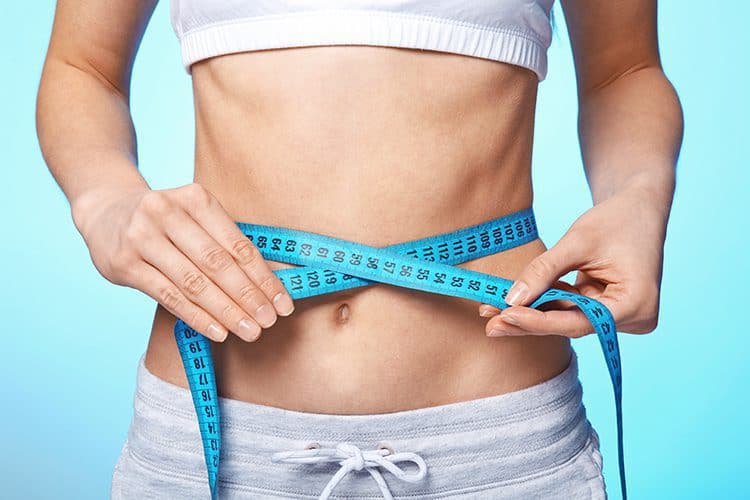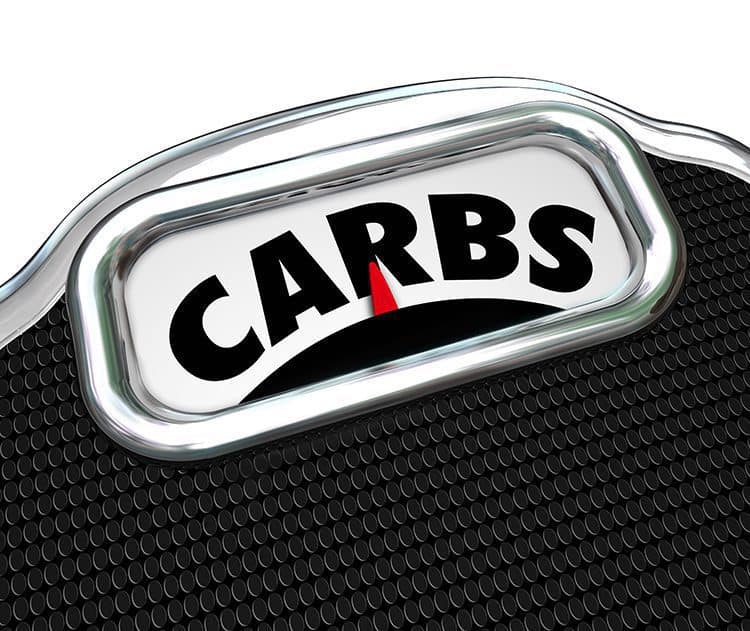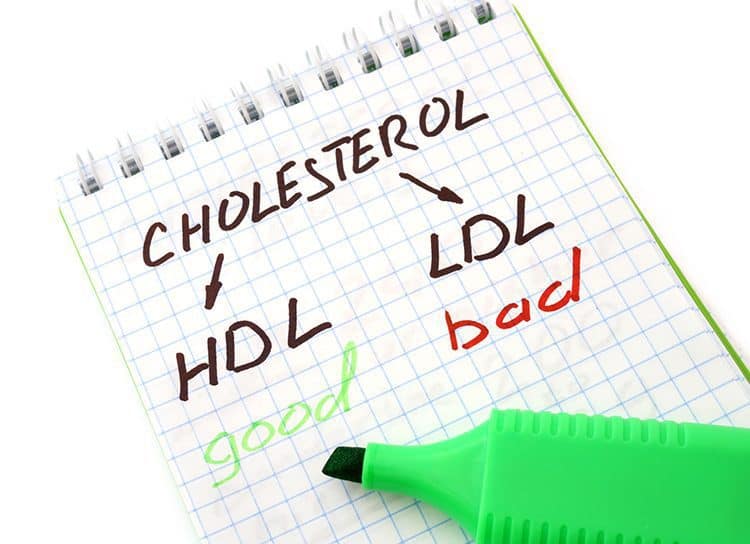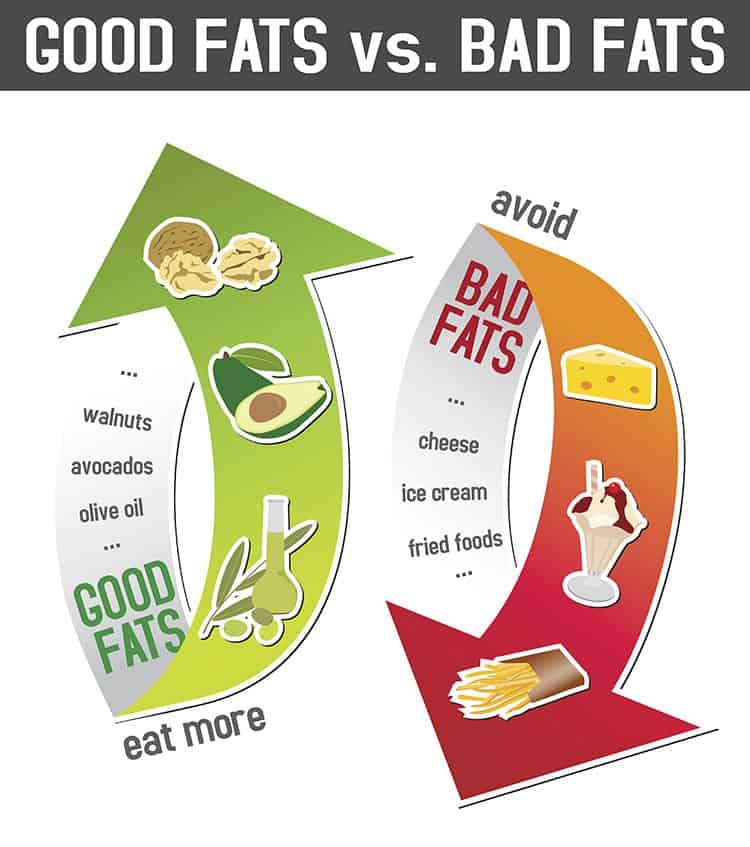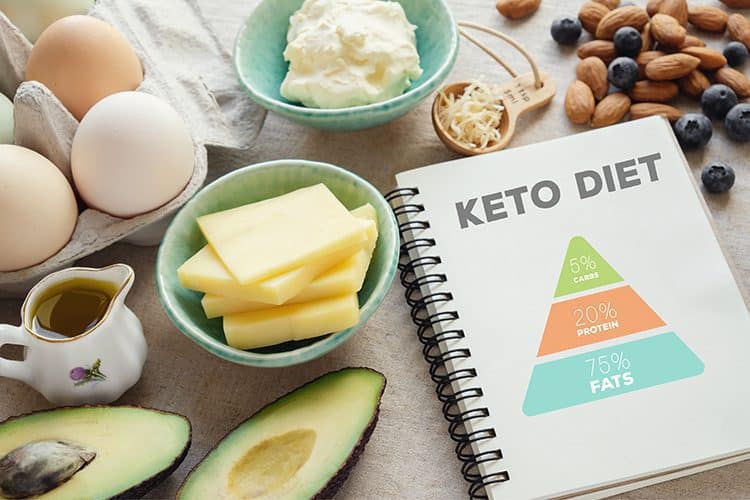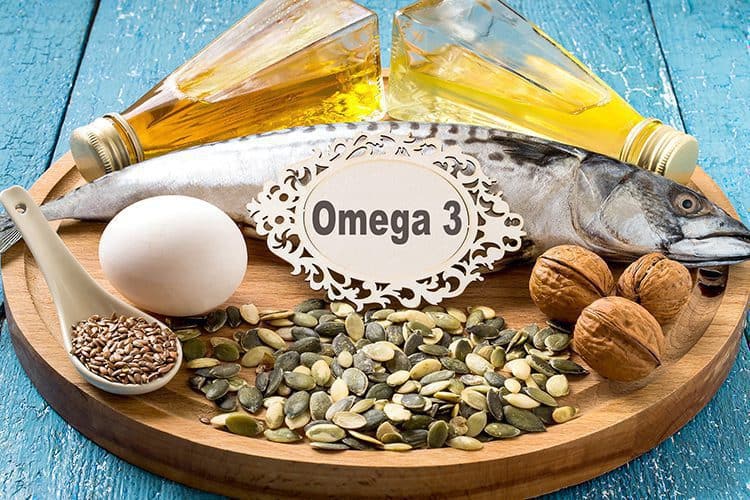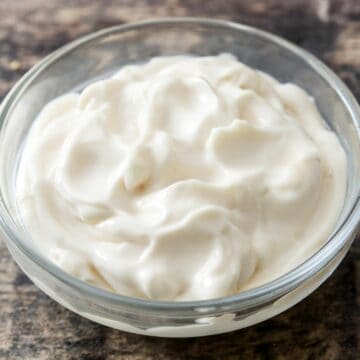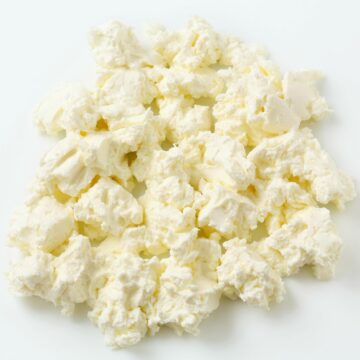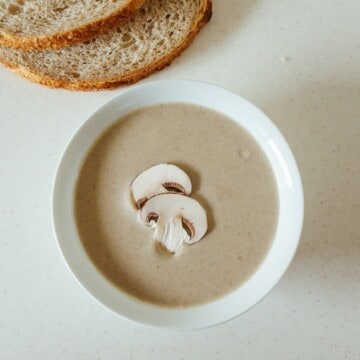We pride ourselves on providing the most accurate, actionable info for the ketogenic diet.
Not every source for keto information is this reliable: the popularity of keto has brought a lot of misinformation.
There are some half-truths out there that only harm your diet and wellbeing.
Today we’re going to discuss 10 of the most persistent and annoying myths around keto.
You might be bought-into some of these or they might be totally new to you, but you’ll learn something!
1. “Exogenous Ketones Are Key”
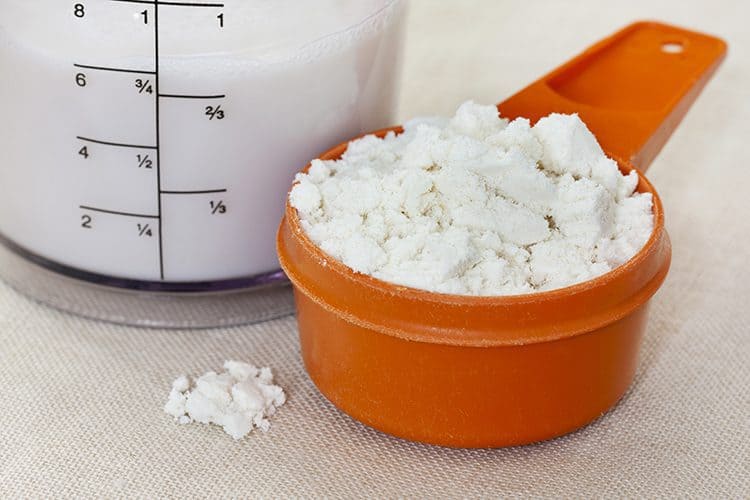
Many people swear by exogenous ketones, but they’re actually not that useful for a ketogenic diet beyond the first few weeks.
You may gain some benefits early on since these compounds have some modest positive effects on getting into ketosis, but not much more.
After you’re already in ketosis, they aren’t likely to help you at all.
If anything, you’re at risk of reducing your endogenous ketone production – either through downregulation or by getting into dependent habits.
Leaning on these supplements for ketosis is an easy way to build bad habits, waste your money, and distract yourself from what actually works.
Stick to the basics!
It also doesn’t help that most of the positive discussions of these products come from people trying to sell them.
This should always ring alarm bells, as the supplement market is full of unscrupulous behavior!
Debunking the Myth: Ketones and Sustainability
Exogenous ketones don’t help you build the habits that you need to make a success of your keto diet.
There’s not much benefit to these supplements in the long-term, but you will end up spending a lot of money if you’re not careful.
They’re not cheap and if you’re using them for months, it all adds up.
Instead, focus on improving the habits associated with the ketogenic diet.
This means better fat-choices, improved veggie intake, and boosting your exercise performance.
These are the best ways to lose weight as quickly and effectively as possible.
If you want to use exogenous ketones, we have 3 quick tips:
- Ignore raspberry ketones – they’re absolutely useless in humans. They’re often sold because of their effects on rodents, but the science says they don’t work in humans (like you)
- Use them for the first few weeks of keto, but no more. They’re going to be useful for the early adaptation process only.
- Choose Ketone Esters, rather than salts. The science on esters is far more solid than salts.
Any successful diet focuses on doing the basics well – don’t worry about special “keto supplements” until everything else you do is effective and consistent.
2. Ketosis is the only way to lose fat
While ketogenic diets provide you with a great way to lose fat, anyone who says they’re the only way to lose fat is trying to sell you something.
What we know already is that almost all diets work – it’s not complicated to produce a calorie deficit.
The bit that matters is finding the one that best suits your needs, goals, and how you want to train.
Diets are like tools in your toolkit: pick the one that helps you get to your goals most effectively.
Keto is exactly that if you’re looking to accelerate fat loss, enjoy high-fat foods, and crush PRs in sub-maximal exercise/endurance.
It’s the best way to lose fat if it suits your taste and exercise routine.
Keto is a fantastic way to lose weight and build better habits, but science doesn’t support using keto, specifically, for everyone.
If you’re looking to lose weight, it’s about finding what you can stick with and enjoy.
The science shows that – for the average person with an average training routine, the differences are about habits, not macro balances.
When Keto IS the Best Way to Lose Fat
The best time to use keto is when you’re looking to burn lots of fat and don’t need to build muscle or strength.
This goes double for athletes in endurance sports, as keto tends to boost time-to-exhaustion.
Metabolizing fats boosts your endurance capabilities and pushing yourself through “the wall”.
If any of these sounds like you, Keto could be perfect:
- Not focusing solely on sprint or maximum power performance
- Looking to lose lots of fat at a faster pace
- Happy to cut out carbs and focus on higher-fat foods and veggies
- Trying to improve performance in sports with a large endurance component
- You’re an epileptic looking to regulate brain metabolism in conjunction with a doctor’s advice
Keto won’t burn the fat for you – it just gives you the best tools and opportunities to burn the fat yourself.
This makes it a perfect choice for some – but far from the only way to lose fat!
3. More cut = better
Modern dieting culture has some serious flaws.
One of them is the idea that cutting more drastically – with fewer calories and more restrictions – will bring better results.
Cutting more calories does not always help, especially since it often leads to binging, poor dietary habits, and nutrient deficiencies.
This goes for keto as well as “normal” diets.
Losing too much weight can be a real concern for your nutritional health.
Vitamin and mineral deficiencies are easy to develop when you’re not eating much, and sustainable diets are objectively easier to stick with.
A sustainable, slow cut is more likely to maintain muscle mass and produce better health outcomes.
A keto diet doesn’t solve all of the obstacles we face when losing weight – you still need patience and consistency!
Cutting Through Keto
A hard cut with minimal calorie intake isn’t appropriate very often.
Producing a greater weight loss on keto is more likely to be effective with normal calorie intake and increased exercise.
The ability to oxidize fat for fuels is the key outcome for ketogenic diets.
Combined with the hormonal benefits associated with exercise, it makes more sense to keep the calorie intake stable and boost your exercise output.
These both result in an increased calorie deficit, but this diet provides the tools for making the most of exercise-demands.
Your diet stalling isn’t always a cause to cut calories drastically, especially when you’re already dealing with the challenges of low-carb dieting.
A sharp calorie deficit with carb restriction adds up to a very high risk of cannibalizing your muscle for energy.
Needless to say, getting to the point where your body is consuming your bones and muscles to make up calorie deficit is not healthy or productive!
A balance between calorie intake changes and exercise volume is always the best balance for otherwise-healthy people looking to lose fat.
4. Carbs make you fat, not calories
The keto diet limits carbs, but some people continue to insist that carbs are the problem by themselves.
We call these people ‘charlatans’ or hucksters
Despite what pseudo-science “gurus” are going to say about insulin, countless studies show us that calories are key to fat gain/loss.
The balance of macronutrients can change a lot, but they’re primarily important for performance and health – they don’t change fat loss noticeably.
Ketogenic diets are great for providing you with the chance to eat better quality fats and stop over-eating carbs.
However, it’s not the lack of carbs that make a ketogenic diet healthy- it’s the consumption of great fat-sources and fibrous veggies.
The change in carbs is great because it means you’re eating fewer twinkies and chips.
It’s an exaggeration to lump all carbs together and blame them for obesity.
If you’re already over-eating carbs or have a poor relationship with carb-rich junk food, keto is a great choice.
Keto for Behavioural Gains
This is true once again: keto dieting is more beneficial for the habits you forge than the removal of carbs by itself.
If we ignore the unique metabolic benefits of ketosis, it’s all about the behaviors you practice on a day-to-day basis.
Learning better restraint around “problem” foods – the luxury kind that you might comfort eat – is key.
Cutting carbs is a tool to get to ketosis, rather than being the whole point of dieting.
Prioritize the right aspects of your diet and you’ll find that they carry over to the rest of your life.
Even if you’re not looking to stick with LCHF diets for the rest of your life, learning to handle your bad carb-habits lasts a lifetime if you do it right.
5. Dietary cholesterol = Cholesterol
This myth is infuriating: the food you eat is not the exact same as the compounds in your body.
Cholesterol that you eat comes into the body, is broken down, and use for other stuff.
So when you eat cholesterol, you’re not directly increasing your blood-cholesterol and a diet that is high in cholesterol will not cause blood cholesterol to shoot up.
The levels of cholesterol in foods are only a concern when they’re in excess.
Obviously, this is possible on a ketogenic diet but reductions in overall body fat and calorie excess are likely to lower cholesterol levels.
This is especially the case since many high-cholesterol foods are used for fuel when you eat them – the fats don’t just sit around in your bloodstream.
Cholesterol: Getting it Right
Cholesterol levels should be restricted and monitored – you don’t need to worry about cutting it out entirely.
Ketogenic diets aren’t at a huge risk, especially when compared to the “average” diet.
The foods you eat shouldn’t be excessive, especially those rich in saturated fats.
Cholesterol-rich foods shouldn’t be your primary fat source – a good keto diet prioritizes high-quality polyunsaturated fats – but they’re not going to give you heart disease.
Finding balance and eating lots of high-quality fats and nutrient-rich, fibrous veggies is your top priority.
If you’re losing weight and getting fitter, don’t over-think the cholesterol: it’s probably the best it’s ever been.
Practice moderation, not a restriction.
6. Avoid Saturated Fats
Saturated fats are not bad for you if consumed responsibly.
There are a lot of negative myths surrounding saturated fats – which is ridiculous.
Saturated fats are a group of compounds – they’re not all the same and they don’t affect you equally.
There are better and worse types, and they’re not just bad for you.
It’d be convenient if we could point to one group of foods as “unhealthy”, but it just isn’t that simple!
This is another case of limitation and moderation, rather than avoidance.
Some of the best foods for ketogenic diets are saturated fats – such as coconut oil – since they are easily oxidized.
They provide amazing fuel for exercise, but they should be limited just to be safe.
Treating saturated fats as innately unhealthy is reductive and the result of corporate pressures.
Rather, saturated fats are just the least-healthy of the fats – a far cry from being bad for you!
Saturated Fats Can Be Healthy
A ketogenic diet has such a high fat intake that you’re not going to be able to reasonable avoid saturated fats.
Nor should you try to – they are found in some of the most important foods – like eggs and meat.
The rule we like to use is that saturated fats should make up no more than ⅓ of your fat intake.
This is a good upper limit since it ought to be a clear minority of your fats.
If you’re consuming more than this, you’re going to be in excess.
Aim for high-quality saturated fats like those found in coconut oil – MCTs – which are the body’s favorite source of fat for fuel.
These are burned up for exercise very easily, making them great support to the keto-adaptation process!
7. Keto is a high-protein diet
This simply can’t be true: ketogenic diets have a hard limit to the amount of protein you can consume.
While there are some reputable sites out there calling keto a high-fat, high-protein diet, this is absolutely false and irresponsible.
The bleeding-edge scientists in support of keto are the ones demonstrating that this is not a high-protein diet.
Keto is defined as a “high fat, adequate protein” diet and has a restricted protein intake.
The science shows us – clearly – that proteins are broken down into amino acids which are oxidized for fuel.
Too much protein means a short-term fuel source is being used instead of fats.
Basically, too much dietary protein is going to result in prioritizing proteins-as-fuel over fats.
This is the opposite of what a keto diet aims at and is likely to slow your keto-adaptation.
While it might not be a huge deal – it’s only possible that it’ll knock you out of ketosis – it’s definitely a bad way to structure a keto diet.
There are no real benefits to huge protein intake on keto: it’s not a muscle-building diet and endurance athletes benefit from keto-adaptation.
Protein is a great nutrient to improve wellbeing and recovery, but it’s definitely not a priority.
Especially since changing to a keto diet from a “normal” diet is a big hike in protein already.
Protein – How Much is Too Much?
For most people, protein is a priority nutrient.
On keto, however, you need an upper limit.
You can probably sustain ketosis at around 30% of your calories from protein, but you’re going to be struggling to improve fat-efficiency above this mark.
High protein keto isn’t the end of the world, but ketogenic diets are always sub-optimal for muscle gains so you’re going to need to focus on the fat loss changes.
Trying to optimize protein intake or muscle gains just doesn’t make sense.
A keto diet that is adequate protein is going to be the most effective – if you’re looking for strength and muscle, keto just isn’t the right diet.
8. Keto for muscle/strength is great
This is just anti-science: Ketogenic diets are for fat loss and endurance performance.
Muscle and power are for diets without carb-restriction.
All the science shows us that ketogenic diets inhibit muscle growth and reduce top-end strength.
This isn’t a problem at all since most people won’t be trying to maximize muscle gains, and keto is great for rapidly losing fat.
But a ketogenic diet has to be used for the right goals.
You’re not going to notice the strength changes unless you’re performing low-rep, high-intensity exercise often.
However, if that sounds like your training, ketogenic dieting isn’t the right move.
Keto is just inappropriate for sprinters, throwers, jumpers, and other power-athletes.
If you’re trying to push your 1-rep-max lifts, carbs are going to be your friend – and rapid weight loss probably isn’t on the agenda!
All of this is fine: most people looking to use a keto diet are interested in health, wellbeing, and fat-loss.
For these goals, it’s not going to be a noticeable change and you’ll see great benefits
Finding Balance for Fat Loss
Ketogenic diets are about adjusting the balance between the speed of your fat loss and other changes – like muscle loss or strength – that comes with dieting.
While a higher-carb, pro-strength diet is going to mean maintaining or building muscle while burning fat, a ketogenic diet ignores these for maximum fat-loss potential.
You’re effectively pushing a slider along a continuum with your carb intake: more carbs allow for greater muscle maintenance/gains, but a slower fat-oxidation process.
You just need to figure out which is the top priority for your own lifestyle/goals.
9. Keto requires clean foods
Cleaning up your diet doesn’t mean a clean diet and moderation is still superior to restriction.
Ketogenic diets are effective for weight loss regardless of what foods you use to achieve ketosis.
This isn’t the healthiest approach, but you’re not going to ruin your weight-loss with a peanut butter cookie here or there.
A diet that consists of nothing, but zero-carb ice cream and hot dogs aren’t going to be healthy, but you probably won’t stick to a keto diet of plain chicken breast and nuts/seeds.
There’s a human in the middle of the diet that has cravings and a desire for delicious foods.
While it’s going to be beneficial to eat nutrient-dense foods without any junk, it’s both unnecessary and unrealistic.
Making a diet work for you is about controlling and moderating your intake.
It might be cool to brag about your super-clean diet, but nobody else cares and the results are pretty much the same.
There might be a 1% difference to the results if you’re only eating clean foods, but it probably isn’t worth the hardship and self-denial of a more moderated diet.
Enjoying a Ketogenic Diet
Sustainability is the #1 factor in long-term weight loss and maintenance.
Give yourself the best chance to succeed!
You need to enjoy a diet since you’re going to be using it for a long time.
If you can’t imagine sticking with your diet for a year, you’re probably being too restrictive with your eating.
Structuring keto to allow yourself some luxuries here and there is key to making long-term, consistent progress.
You don’t need to eat with the discipline of a world-champion bodybuilder unless you want their results.
The key to an effective diet for the rest of us is reducing resistance and making the process easier.
This means being as clean as possible but you’re human and need to give yourself some leeway.
[Disclaimer: This doesn’t mean eating a bunch of ice cream, but it might mean a bacon burger every so often and low-carb treats. Finding balance and practicing strong fundamentals are key.]
10. All Fats are Equal
The way you eat fats on keto should reflect the values of different fats in your diet.
When you’re on a high-fat diet, you need to pay some attention to which fats you’re consuming, why, and what they do to your body.
The ketogenic diet comes with a lot of freedom, but better diets preferentially incorporate higher-quality versions of their fats, carbs, and proteins.
This is no different for keto – if anything, it’s more important since you’re eating so many fats.
Our Simple System for Fats on Keto
The point is a simple one: maximize the proportion of high-quality fats.
The fats exist in a very general hierarchy (from best to worst):
- Polyunsaturated fats (at least ⅓ of your fat intake)
- Monounsaturated fats (approximately ⅓ of fat intake)
- Saturated fats (⅓ of total fat intake, at most!)
We’ve discussed saturates before.
Just aim for the top 2 fats where possible to bring the best results.
This also means choosing Omega-3 rich foods where possible and minimizing Omega-6 intake at the same time.
This produces a healthy, anti-inflammatory balance in the body and protects mental health.
This is a great excuse to eat a lot of fatty fish – one of the best food choices for human health in general!
Closing Remarks
The Keto diet doesn’t need to be built up with these myths: it’s already a fantastic and versatile option on its own benefits.
The cult-like following it has amassed with half-truths online is a problem and only harms people like you, who are trying to get unbiased, scientific info.
When we look through the list of problematic claims, it’s clear that many of them have at least a pinch of truth.
That’s the point today – that exaggerations are a problem when they are used to sell unnecessary supplements or simplify a complicated topic.
Armed with the nuance and information about these 10 common falsehoods, you’re now able to practice an even more effective ketogenic diet.
You deserve to make informed decisions, and we hope that you get some real value from these 10 debunked keto myths!
Now check out our 19-Day Ketogenic Diet Plan and Menu here!

